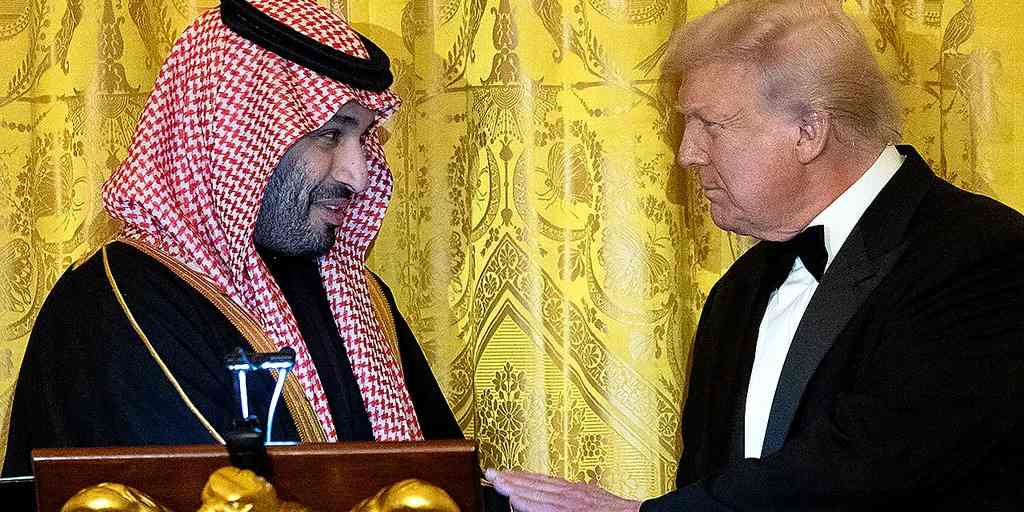The "Major Non-NATO Ally" designation positions Saudi Arabia as a central pillar of Trump's reshaped Middle East architecture. A new balance appears, in which Qatar handles soft leverage while Riyadh takes on hard-power responsibilities. Israel's unique privileges could face some erosion. But Saudi Arabia still pursues multi-alignment.
Friday, November 21, 2025
Uriel Araujo, Anthropology PhD, is a social scientist specializing in ethnic and religious conflicts, with extensive research on geopolitical dynamics and cultural interactions.
Washington's decision to designate Saudi Arabia as a "Major Non-NATO Ally" (MNNA) has already made headlines, but much of its deeper geopolitical logic remains underreported. With Riyadh now joining the exclusive MNNA club, the Middle East's diplomatic landscape is being redrawn in real time.
The designation signals not only enhanced military cooperation but also an implicit recognition of Saudi Arabia's centrality in Washington's current regional calculus, which has shifted dramatically under Trump. One may recall that Qatar has similarly been elevated in importance, for Washington under the same administration. As I've noted, Washington sees Doha as uniquely positioned to mediate between rival factions, maintain lines of communication with actors deemed untouchable for others, and - crucially - offer leverage over both energy markets and political negotiations. Qatar's hosting of various diplomatic channels, its LNG leverage, and its balancing act between Iran and the Gulf monarchies are all assets.
For the US, If Qatar provided the "indirect" leverage, Riyadh offers the "direct" one. The two together are forming a dual system of influence. The MNNA designation in any case tilts the fulcrum significantly in the Saudis' direction.
Back in May, I argued that Trump was - surprisingly enough - marginally reducing Israel's dominance over Washington's regional decision-making: by distributing Washington's diplomatic weight more evenly across Riyadh, Doha and even Ankara at times, the US president was crafting new bargaining chips, therefore extracting more flexibility from all players, including Israel itself. Thus far, this pattern has remained somewhat consistent. With Saudi Arabia now receiving F-35 warplanes, one sees even more clearly how Israel's "privileges" are being diluted to some extent.
The MNNA designation entails, among other things, preferential access to US military technologies, joint research opportunities, and expedited arms transfers. Moreover, it grants Saudi Arabia deeper integration into the Pentagon's logistical and intelligence frameworks. No wonder Israeli analysts have reacted with visible unease.
The timing is equally significant. The US defense industry is facing structural pressures, which are to reflect on " deep state" pressures on the incumbent administration, as I've argued.
Trump's desire to push allies toward self-reliance paradoxically undermines American defense contractors' expectations of guaranteed long-term procurement flows. Now, however, the MNNA designation for Riyadh at least potentially provides a massive outlet for restoring some of those flows - a geopolitical correction of sorts. If Washington is no longer willing (or able) to sustain perpetual large-scale operations abroad, it will instead empower regional pillars capable of carrying out tasks once performed directly by US forces. Saudi Arabia could become one such pillar.
Still, the implications reach far beyond military procurement. The move feeds directly into Trump's balancing strategy, which aims to avoid over-committing to any one regional player. Israel may be displeased, but this is part of a broader pattern. The administration seems intent on fostering what we might call a "distributed hierarchy" in the Middle East: Qatar for diplomacy and soft leverage; Saudi Arabia for hard power and energy stabilization; and Israel for high-tech military coordination. This configuration in theory grants Washington far more maneuverability than the rigid "Israel-centric" model of previous decades.
In addition, from an American perspective designating Riyadh as MNNA should inevitably push Saudi Arabia closer to Washington's orbit, potentially jeopardizing the kingdom's developing ties with China. But things are not so simple. Saudi Arabia aims to pursue multi-vector diplomacy, maintaining its BRICS-oriented engagements while simultaneously extracting maximum benefits from Washington. It is precisely because Riyadh is strong enough politically and wealthy enough economically that it can afford to deepen cooperation with the US without abandoning its wider outreach.
In this light, Trump's decision appears less like a "concession" and more like a bet: the US recognizes that the unipolar era is gone, and Washington needs strong regional allies that can operate autonomously while still aligning (enough) with American interests. Saudi Arabia fits the bill. One should note that the kingdom's Vision 2030 reforms, diversification efforts, and regional diplomatic activism - from Yemen mediation attempts to mending ties with Iran - clearly show that Riyadh is not merely a passive US partner.
The MNNA designation in any case is part of a broader recalibration. Washington is restructuring its Middle East footprint for an era of reduced direct intervention and heightened reliance on regional actors. Saudi Arabia is becoming a central pillar of that architecture, reinforcing Trump's leverage-based diplomacy across the region.
In short: Riyadh has moved from being a heavyweight client to a genuine strategic partner. And as the balance of power continues to shift across the Middle East, this new status will shape negotiations, alliances, and crises in ways analysts are only beginning to fathom.
It remains to be seen up to what extent the US-Israel "special relationship" could be reshaped in this scenario, especially considering the weight of the so-called Israel Lobby in American politics. It also remains to be seen how much Washington, given its cold war mentality, is willing to "tolerate" Saudi Arabia's multi-alignment approach, with BRICS, China and so on.
